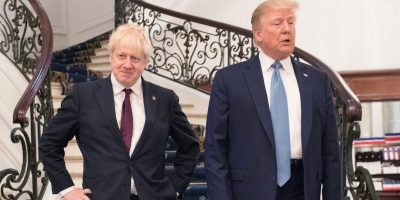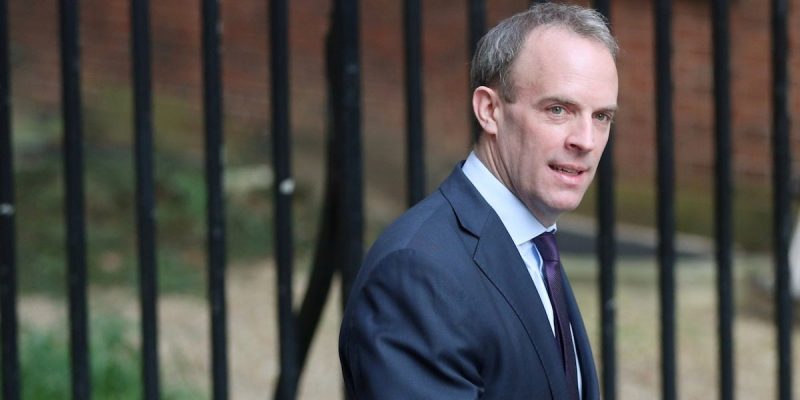
The UK wants to join with Trump to form a new global alliance to end China's grip on 5G
by Adam Payne- The UK wants to create a new global alliance to reduce China’s dominance of emerging 5G technology.
- Boris Johnson wants the group to include the G7 countries, India, Australia, and South Korea.
- Prime Minister Johnson is under growing pressure from within his own Conservative party to loosen ties with Beijing and scrap the UK’s 5G deal with Chinese telecomms firm Huawei.
- China’s plan to enforce new laws on Hong Kong is putting more strain on the UK-China relationship.
- Visit Business Insider’s homepage for more stories.
The UK government wants to form a new alliance with the United States and other major democracies, to share 5G and other technologies with one another and reduce their reliance on China.
Johnson is seeking to reduce China’s role in developing Britain’s infrastructure after striking a controversial agreement with Chinese telecomms firm Huawei to help develop its 5G earlier this year
The agreement angered Members of Parliament in Johnson’s own Conservative party and also the Trump administration, with the President hanging up on Prime Minister Johnson in an “apoplectic” phone call.
The US has warned the UK that the current deal with Huawei would give China a back door into western intelligence sharing.
Johnson is now trying to shrink UK’s reliance on Chinese technology, amid fury towards Beijing’s handling of the coronavirus outbreak.
The UK has asked the US about potentially forming a group of ten democracies to rival China when it comes to developing technology, The Times of London newspaper reports.
The newspaper says the UK envisages the group to include all G7 countries as well as India, Australia, and South Korea, and focus on pouring investment into technology firms in those countries.
The UK prime minister is under growing pressure to loosen Britain’s ties with China and Huawei in particular.
Opposition to the deal with Huawei within Johnson’s party has swelled since a parliamentary vote on the agreement in March, when nearly 40 Conservative MPs rebelled to vote against the UK government.
Asked about the reports, a spokesperson for Johnson said on Friday that it was true that “we are seeking to diversify the market and are talking to our allies about it, including the United States.”
Business Insider reported last month that a number of influential Conservative MPs set up a new parliamentary bloc called the “China Research Group,” whose members want Johnson to revise the agreement with Huawei.
Several Conservative MPs are angry with how Beijing has approached the COVID-19 outbreak – particularly the accuracy with which it has reported the number of cases and deaths in China.
Last week, it was reported that Prime Minister Johnson plans to scrap the agreement with Huawei and write a new one which seeks to eliminate the company’s UK market share by 2023.
Under the current deal, Huawei’s role in the UK network will be reduced to 35% by the year 2023.
The UK’s National Cyber Security Centre last week announced it would conduct a review into Huawei’s role in Britain’s 5G network, after London’s close ally the US imposed new sanctions on the Chinese telecomms firm.

China’s plan to impose new security laws on Hong Kong is putting even more strain on UK-China ties.
On Thursday the UK, US, Australia, and Canada released a joint statement which said Beijing’s plan would “curtail the Hong Kong people’s liberties” and be in “direct conflict with its international obligations.”
UK Foreign Secretary of State Dominic Raab added that if China did not change course then the UK would tweak the law to make it easier for British National (Overseas) passport holders in Hong Kong to secure UK citizenship.
Currently, there is a six-month limit on British National (Overseas) passport holders in Hong Kong visiting the UK without a visa.
However, Raab said the UK government would bin this rule, and let them come to the UK for an extendable period of up to 12 months, which could be a pathway to full UK citizenship.